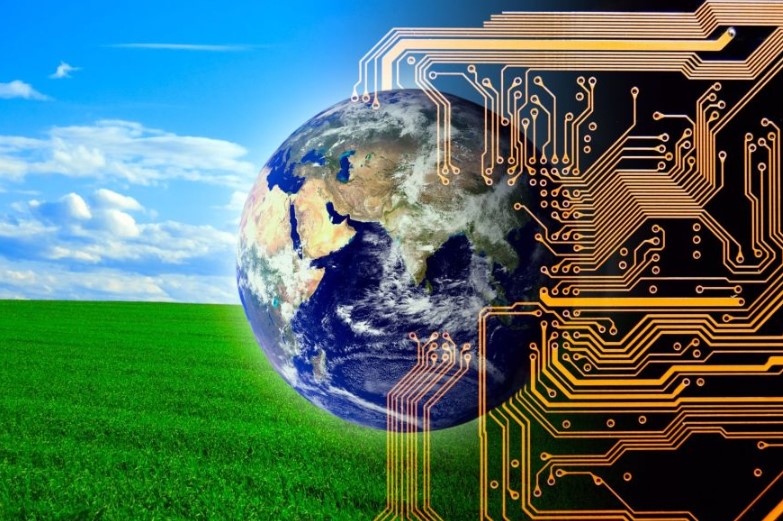
Science and technology have always been closely linked, but recent advancements have led to an even more dynamic intersection between the two fields. From biotechnology to artificial intelligence, these advancements have the potential to revolutionize our society in both positive and negative ways. In this blog post, we will explore the latest breakthroughs in science and technology and examine the potential implications they may have on our society. By the end of this post, we hope to have a better understanding of how these advancements are changing our world and how we can ensure their responsible development and implementation.
The Intersection of Science and Biotechnology:
One of the most exciting areas of advancement in the intersection of science and technology is biotechnology. Recent breakthroughs in gene editing, personalized medicine, and nanotechnology are revolutionizing the way we approach disease treatment.
CRISPR technology, for example, has been making headlines for its potential to edit genes and cure genetic diseases. With CRISPR, scientists can make precise edits to DNA, potentially eliminating genetic disorders like cystic fibrosis or Huntington’s disease. In personalized medicine, researchers are exploring how to tailor treatments to an individual’s unique genetic makeup, offering more effective and targeted treatments.
Nanotechnology is another area of biotechnology that is showing great promise. Nanoparticles can be engineered to target specific cells or tissues, delivering drugs or other treatments more precisely and effectively. This has the potential to significantly improve the efficacy and safety of drug delivery, as well as reduce side effects.
As these advancements continue, it’s important to consider the potential risks and ethical questions that come with gene editing and other biotechnologies. However, the potential benefits of personalized medicine and targeted drug delivery are immense, and we can expect to see more breakthroughs in this area in the coming years.
The Intersection of Science and Artificial Intelligence:
Artificial intelligence (AI) is another area where science and technology are intersecting in exciting ways. Machine learning algorithms, which are a type of AI, are being used in everything from healthcare to finance to transportation.
In healthcare, AI is being used to analyze large amounts of patient data to help doctors make more informed diagnoses and treatment decisions. This has the potential to significantly improve patient outcomes and reduce healthcare costs. In finance, machine learning algorithms are being used to detect fraud and predict market trends. In transportation, autonomous vehicles are using AI to navigate and make real-time decisions on the road.
While the potential benefits of AI are immense, there are also concerns about the ethical and societal implications of these technologies. For example, biases in algorithms can perpetuate discrimination, and the use of autonomous vehicles raises questions about liability and safety.
As we continue to develop and implement AI technologies, it’s important to consider the potential risks and work to address them proactively. By doing so, we can ensure that the intersection of science and technology leads to a brighter future for all.
Implications of the Advancements:
The advancements in science and technology are bringing about significant changes in many areas of our lives. From biotechnology to AI, these breakthroughs have the potential to transform healthcare, finance, transportation, and more.
However, with these advancements come important implications that we must consider. Ethical questions surrounding gene editing and personalized medicine must be addressed, and the use of AI raises concerns about biases and the potential impact on jobs.
As we continue to innovate and push the boundaries of what’s possible, it’s important to take a thoughtful and responsible approach. This means not only addressing the potential risks and ethical considerations, but also ensuring that these technologies are accessible to everyone and that they benefit society as a whole.
Ultimately, the intersection of science and technology has the potential to lead us into a brighter future, but it’s up to us to ensure that we use these advancements in a way that benefits all people and the planet.
Conclusion:
The intersection of science and technology is leading us into a new era of innovation and possibility. Breakthroughs in biotechnology, artificial intelligence, and other areas are transforming the way we live and work, and opening up new opportunities for growth and development.
However, with these advancements come important implications and responsibilities. We must ensure that these technologies are developed and implemented in a way that benefits all people and the planet, and that we address the potential risks and ethical considerations along the way.
As we continue on this journey, it’s important to remember that science and technology are not just tools for progress, but also powerful forces for change. By working together and embracing a responsible and thoughtful approach, we can harness the potential of these advancements to create a better world for ourselves and future generations.